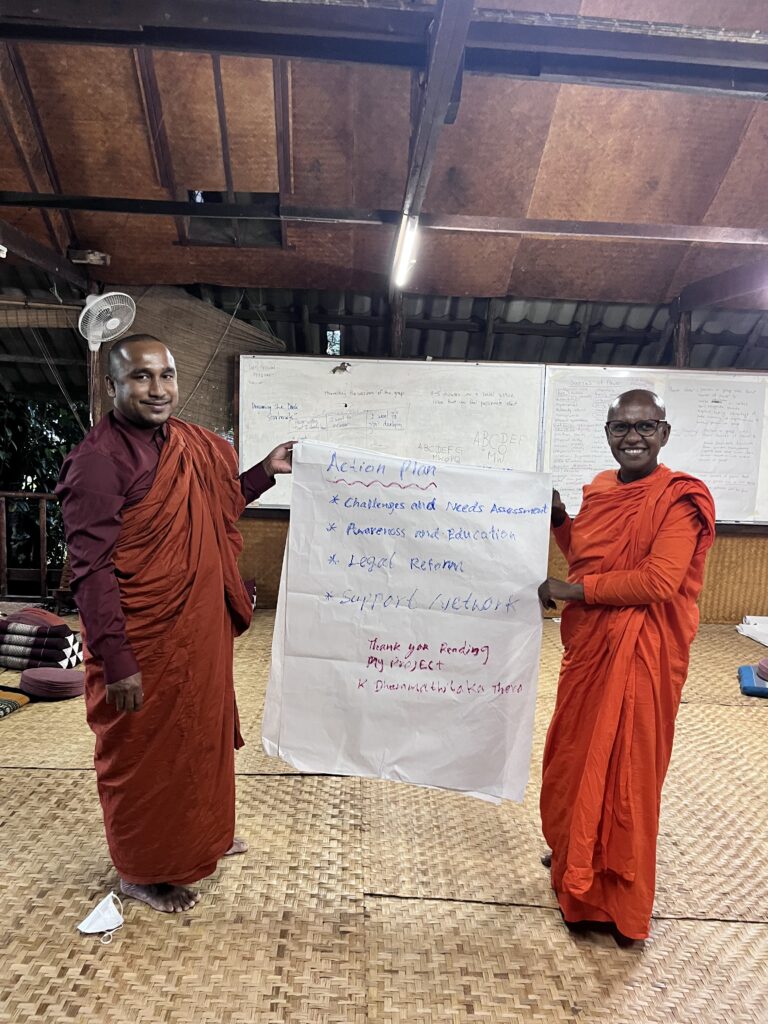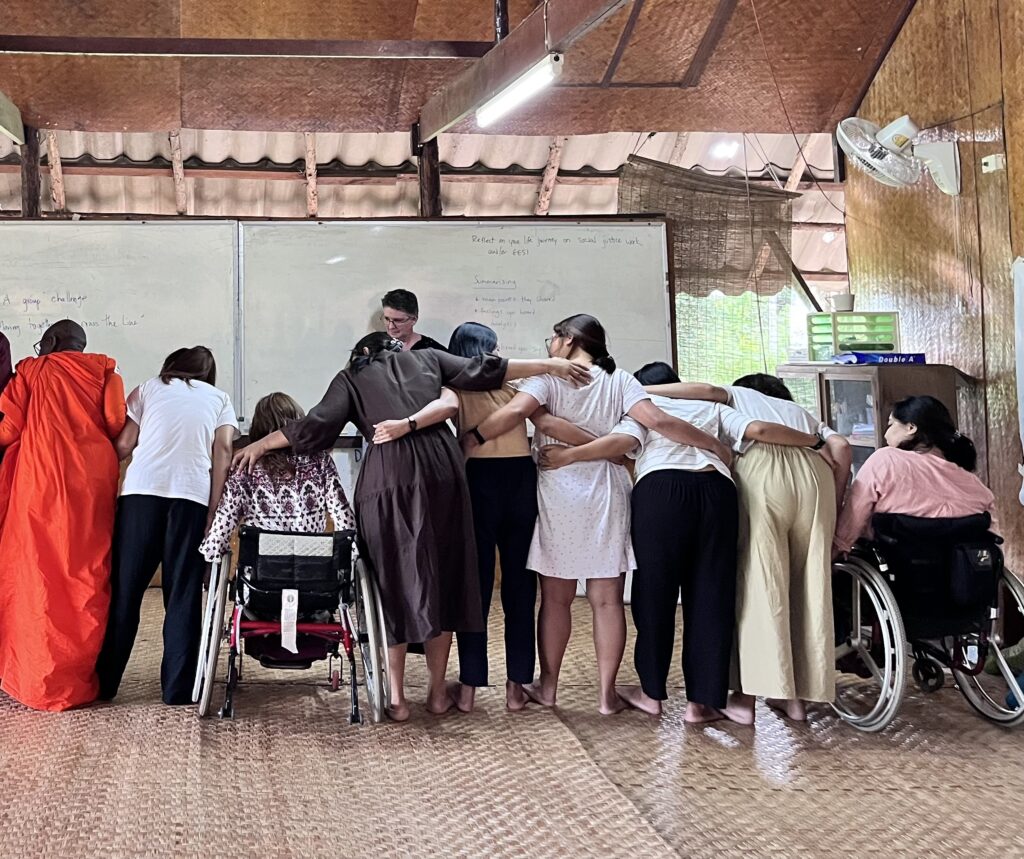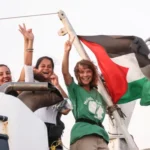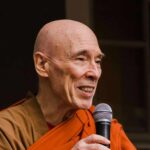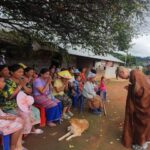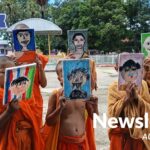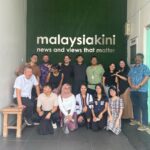The Training of Trainers (TOT) on Gender Equality and Social Inclusion (GESI), themed “Transforming Ourselves, Transforming the World,” convened 12 diverse participants from the Regional Women Peacebuilders Network, Sangha for Peace, and affiliated organizations under the Networks for Peace umbrella.
This TOT extended the Regional Women’s Peacebuilding Gathering hosted at IWP in February 2023, drawing participants from Thailand, Myanmar, Sri Lanka, Cambodia, and Laos. The training was a result of collaboration between the International Women’s Partnership for Justice and Peace (IWP), International Network of Engaged Buddhists (INEB), Family Health International (FHI 360) and supported by the United States Agency for International Development (USAID). The workshop’s content stemmed from a series of consultations with participants after the initial peacebuilders gathering who expressed needs for a deeper grasp of Gender Equality and Social Inclusion (GESI).
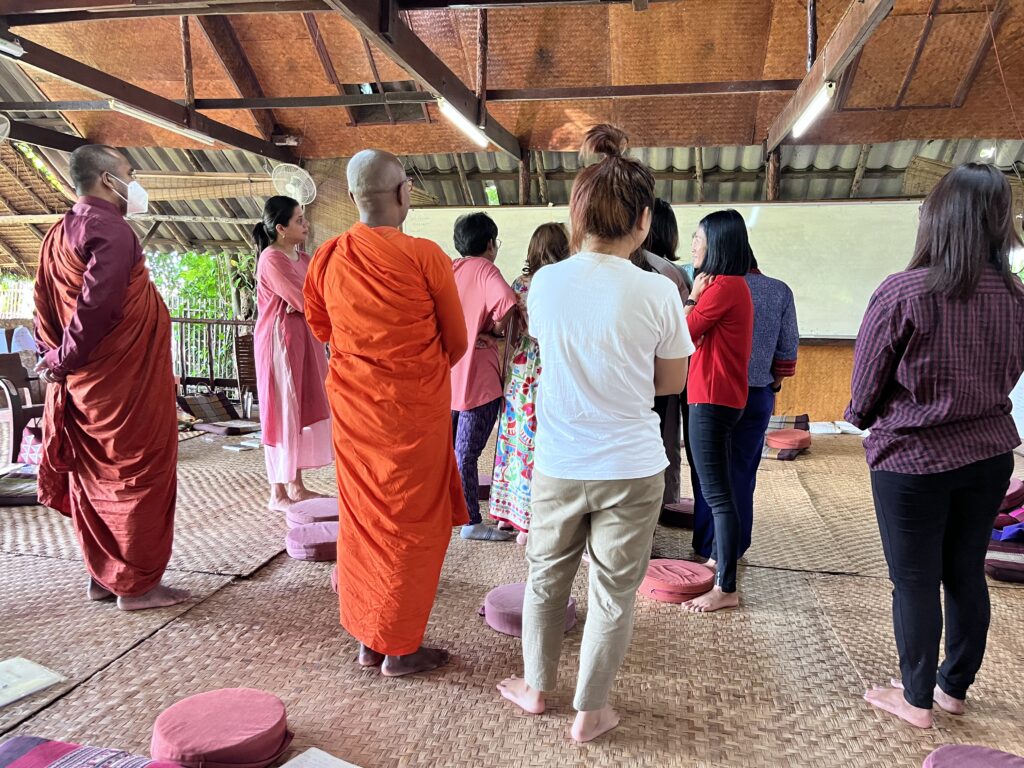
The 12-member cohort comprised of 11 women from Thailand, Sri Lanka, Myanmar and Cambodia as well as one male Sri Lankan Monk dedicated to supporting LGBTQI+ communities joined the TOT hosted at IWP’s training center near Chiang Mai. This TOT provided a platform for individuals from diverse backgrounds, welcoming participation from the Women’s Regional Network of Peacebuilders, Sangha for Peace, and other GESI-focused organizations.
Course Structure:
The program centered on an experiential learning approach, equipping participants with tools, knowledge and skills on Gender Equality and Social Inclusion. Core topics included social change, facilitation concepts and skills, exploring the root causes of oppression, feminist partnership culture, and liberation strategies. The training also focused on inner work, facilitation techniques, and practical skills essential for future trainers.
The TOT spanned 10 days, covering power dynamics, gender diversity, social inclusion, and hands-on facilitation experience. As the training progressed deeper layers of facilitation training were added with each participant conducting their own mini-sessions. The final day involved self-directed drafting of workshop materials for training implementation in the participants respective communities.
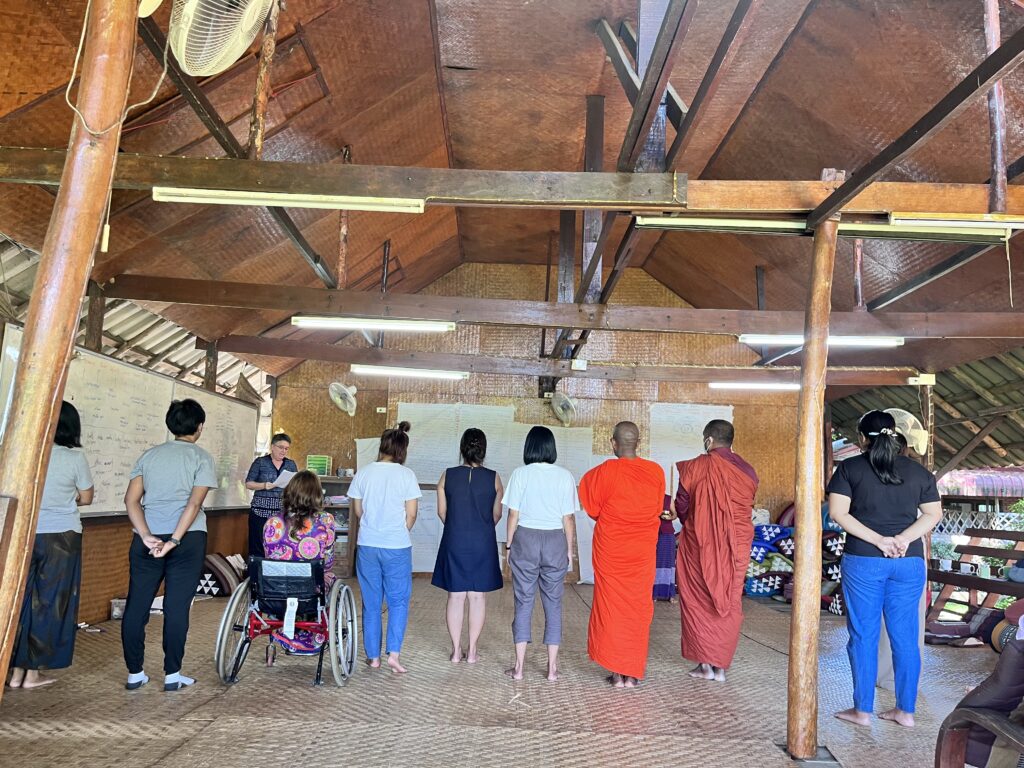
Reflections:
Noteworthy insights emerged from the training, especially the awareness raised on inclusivity issues related to differently abled individuals. Two participants in wheel chairs joined the training and highlighted the need for peer support in their fieldwork underscoring valuable lessons on language subtlelty and inclusivity. Participants felt secure and welcomed in the group, sharing emotional moments, and gaining mutual encouragement.
Testimonials from participants offered insight into the significance of the training, one Sri Lankan Bhikkhuni shared that this experience felt like the “first step for a bigger change” and was keen to continue her learning journey togethering her community in Sri Lanka. Another participant expressed her gratitude to the group for their encouragement ‘I almost gave up [doing interfaith work] but you gave me courage to carry on’.
The participants showed excitment and commitment to their work organizing knowledge transfer sessions in their respective countries and forming close bonds of frienship with each other.
The TOT successfully provided a platform for transformative learning, fostering inclusivity and empowerment, with participants now geared to disseminate their learnings within their respective communities and continue implementing GESI with enhanced awareness throughout their peacebuilding work.
